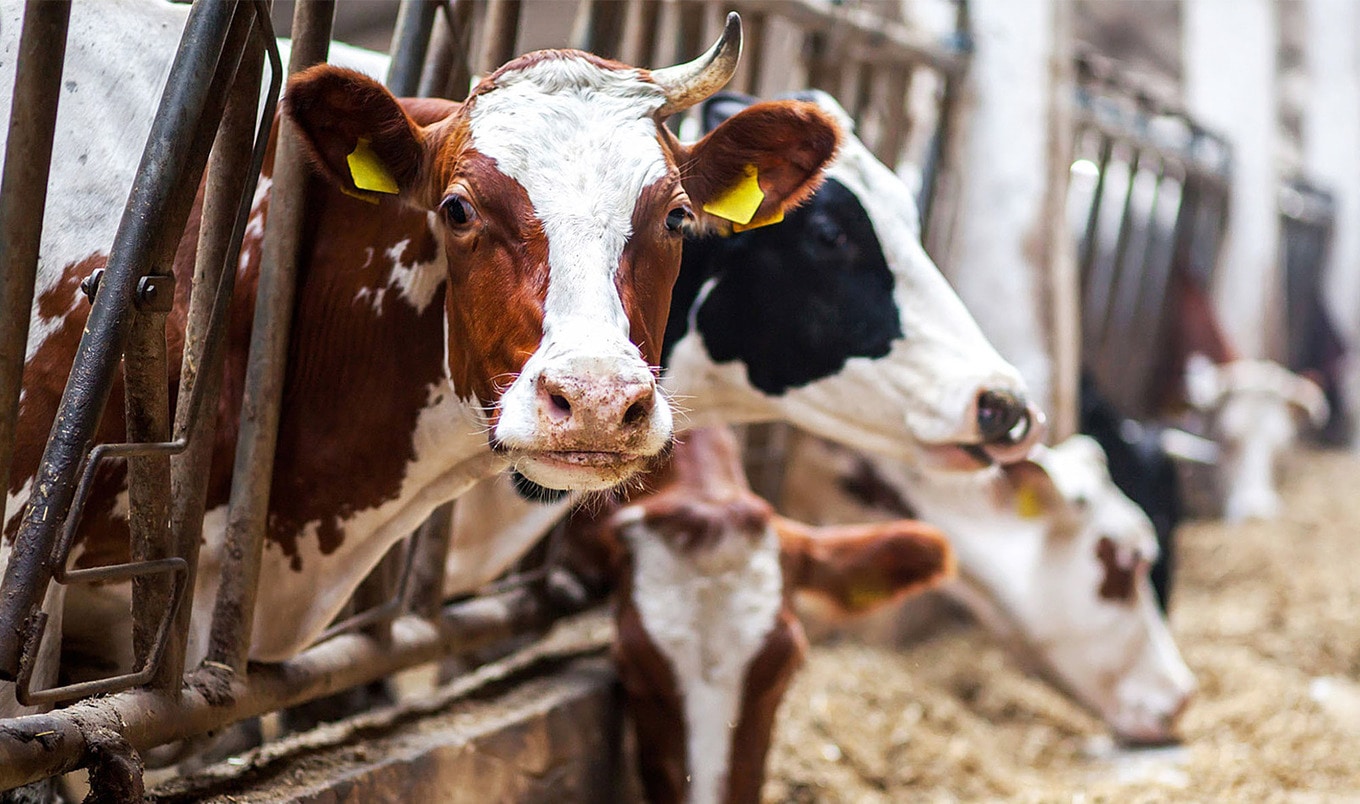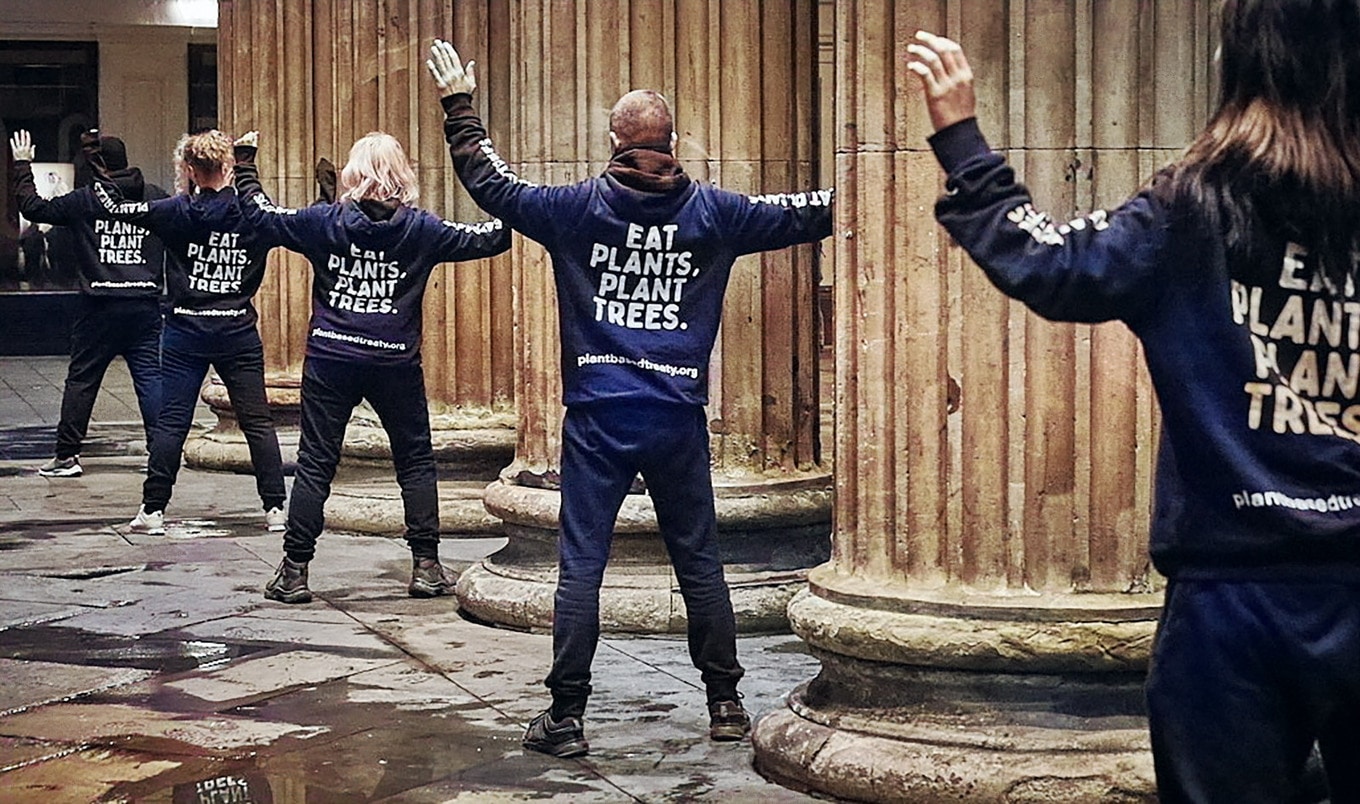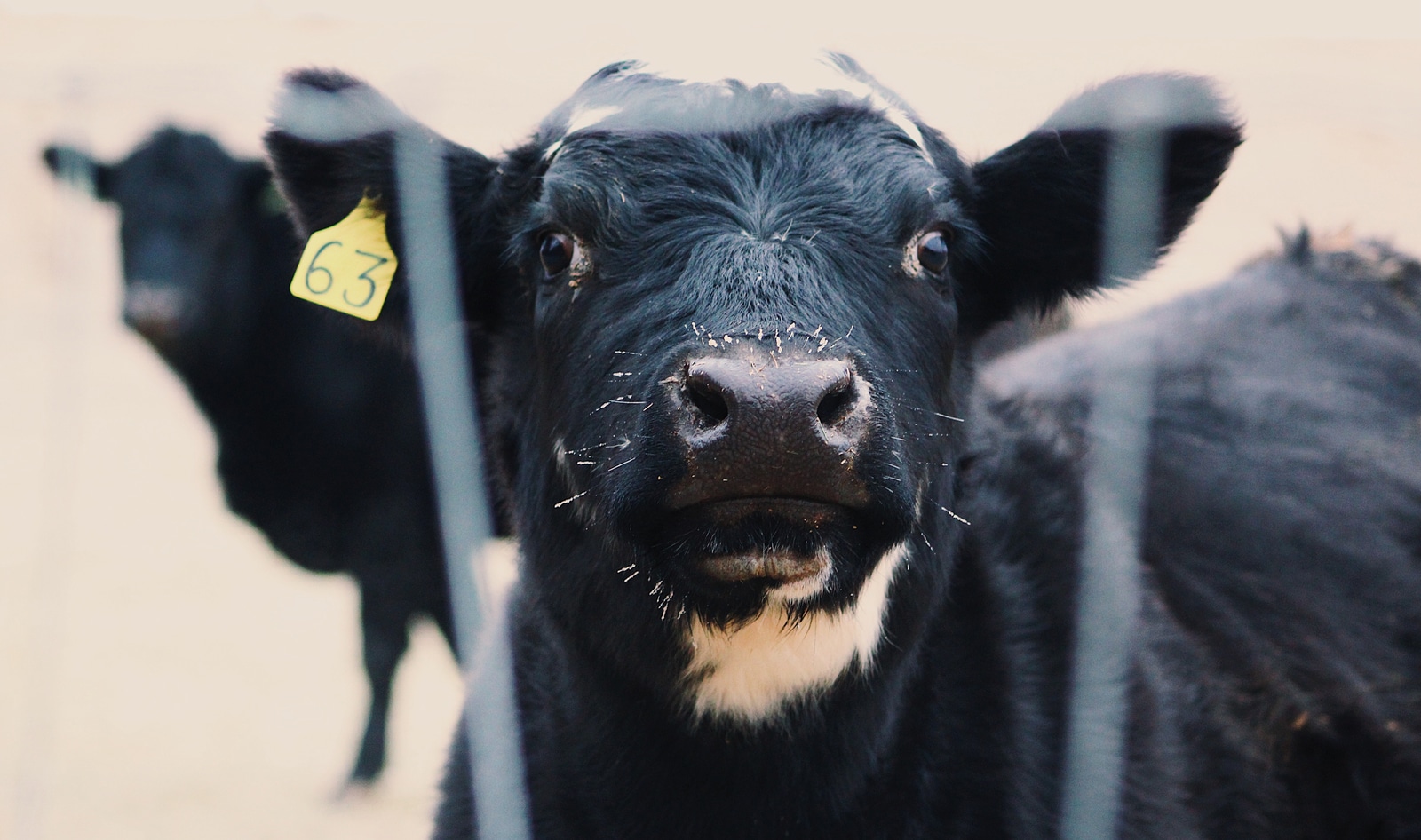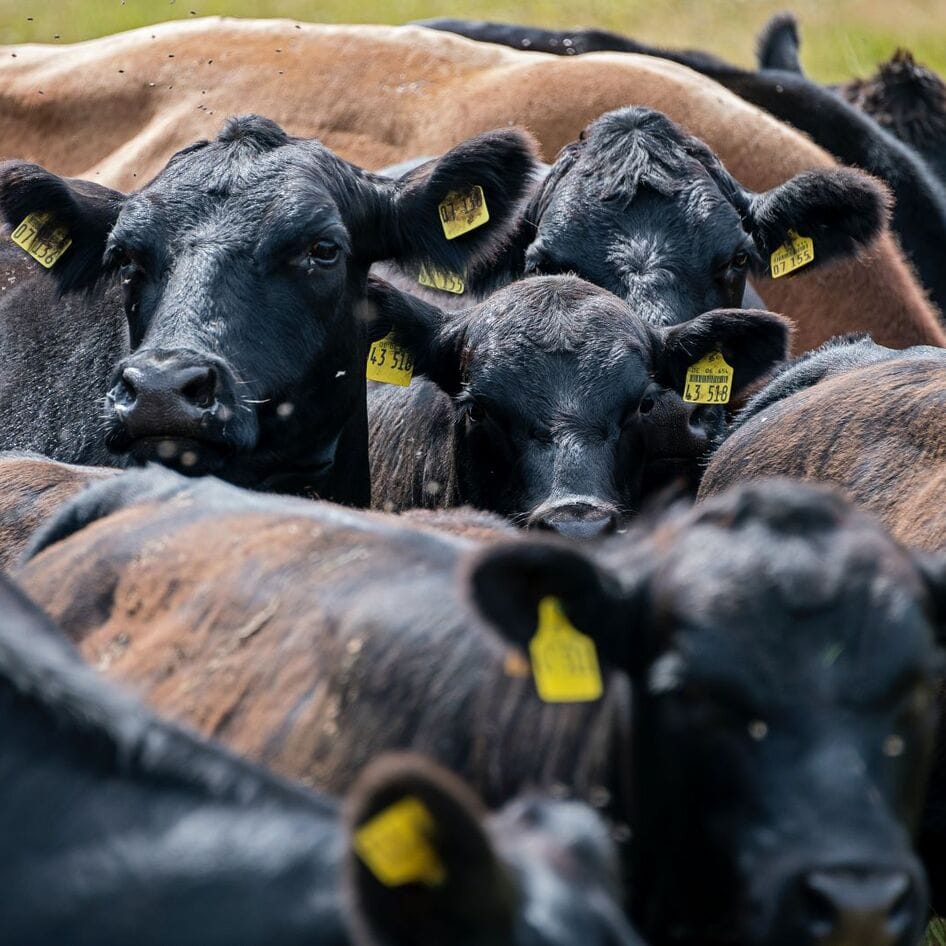A swift shift toward a plant-based food system is critical in mitigating the worst of the climate crisis, acknowledges a new report by the Intergovernmental Panel on Climate Change (IPCC).
Compiled by the world’s top scientists, the final summary of the IPCC’s Sixth Assessment Report outlines the measures humanity must take to prevent catastrophic planetary collapse—which will occur if temperatures reach 2.7 degrees Fahrenheit (1.5 degrees Celsius) above pre-industrial levels.

The IPCC report warns that global greenhouse gasses must be slashed by 43 percent by 2030 and 60 percent by 2035. While the IPCC stresses all sectors must heavily reduce carbon emissions, a focus on food system-related solutions could deliver one-third of the GHG reductions necessary to halt the climate crisis.
“Mainstreaming effective and equitable climate action will not only reduce losses and damages for nature and people, it will also provide wider benefits,” IPCC Chair Hoesung Lee said in a statement.
“This Synthesis Report underscores the urgency of taking more ambitious action and shows that, if we act now, we can still secure a liveable sustainable future for all,” Lee said.
Call for climate action is urgent
Since 1998, the IPCC has met every five to seven years to make its climate assessments and its current report might be the last before 2030—when, if drastic action is not taken, it might be too late to mitigate the climate crisis.
“There is a rapidly closing window of opportunity to secure a livable and sustainable future for all,” the IPCC report states. “The choices and actions implemented in this decade will have impacts now and for thousands of years.”
While it explores a wide swath of climate crisis mitigation strategies, the report calls for a shift toward sustainable, healthy, and “balanced” diets which it defines as “plant-based foods, such as those based on coarse grains, legumes, fruits and vegetables, nuts and seeds, and animal-sourced food produced in resilient, sustainable and low-GHG emission systems.”
 Pexels
Pexels
It says that “balanced and sustainable healthy diets and reduced food loss and waste present important opportunities for adaptation and mitigation while generating significant co-benefits in terms of biodiversity and human health.”
Importantly, the report stresses that the people who are already suffering the worst from the consequences of climate change—such as drought, flood, and heatwaves—are the ones who did the least to cause it. As such, it advocates for solutions that keep equity as a top priority.
“Climate justice is crucial because those who have contributed least to climate change are being disproportionately affected,” Aditi Mukherji, one of the 93 report authors, said in a statement.
“Almost half of the world’s population lives in regions that are highly vulnerable to climate change,” she said. “In the last decade, deaths from floods, droughts, and storms were 15 times higher in highly vulnerable regions.”
The good news, the IPCC report points out, is that there is sufficient global capital to make necessary changes to slash emissions if barriers are reduced, with government investment in climate policies, technologies, and strategies playing an important part.
“The climate time bomb is ticking. But today’s IPCC report is a how-to guide to defuse the climate time bomb. It is a survival guide for humanity,” UN Secretary-General António Guterres said at a news conference this week. “As it shows, the 1.5-degree limit is achievable. But it will take a quantum leap in climate action. In short, our world needs climate action on all fronts —everything, everywhere, all at once.”
The IPCC report was released ahead of the COP28 climate conference in the UAE this November.
Shifting to a plant-based food system
The IPCC makes clear that drastic and immediate change is necessary to mitigate climate change and one initiative, The Plant Based Treaty (PBT), was created to serve exactly this purpose.
First launched in August 2021, the PBT takes a cue from the Fossil Fuel Non-Proliferation Treaty (FFT) and is based on three main principles: Relinquish (stop expansion of animal agriculture to halt environmental destruction); Redirect (move toward a plant-based food system); and Restore (rewild natural habitats to restore balance).
 Plant Based Treaty
Plant Based Treaty
In July 2022, Haywards Heath in West Essex, England became the first city to sign the PBT. Since then, more than 240 councilors from nearly 60 towns and cities in the UK have individually endorsed, along with 20 municipal governments around the world.
This month, Norwich became the third city to endorse the treaty in the United Kingdom and is joining others in calling the country’s government to do the same. “We can’t sit back and ignore the huge part that food systems play and the urgent need for institutional changes to eliminate the substantial contribution that food production plays in climate change and global deforestation,” Councillor Alex Catt, who introduced the motion to support the PBT, said during the council debate on the topic.
“Agriculture, forestry and land use contribute a much higher percentage of global emissions than all of transport combined,” Catt said. “Transport may be a sector that receives a lot of attention, but the food we eat is actually the secret emitter in all of this and we are running out of time to take action.”
The Norwich City Council is currently outlining plans to make plant-based foods more accessible across the region and creating progress assessments toward reducing its carbon emissions by reducing its reliance on animal-derived meat and dairy. It is also writing to the Secretary of State for Environment, Food and Rural Affairs to demand that the UK endorse the PBT as a companion to the Paris Agreement.
“It is promising to see the council commit to providing increased accessibility to plant-based foods through council-run cafes, kiosks, leisure centers and community gardens,” Nicola Harris, PBT Communications Director, said in a statement.
“Institutions have a key role in shifting the nation towards climate-friendly plant-based diets,” Harris said. “Momentum for plant-based food solutions to the climate emergency is growing, with Norwich becoming the third council to call on the UK government to endorse the Plant Based Treaty.”
For the latest vegan news, read:
JUMP TO ... Latest News | Recipes | Guides | Health | Shop









